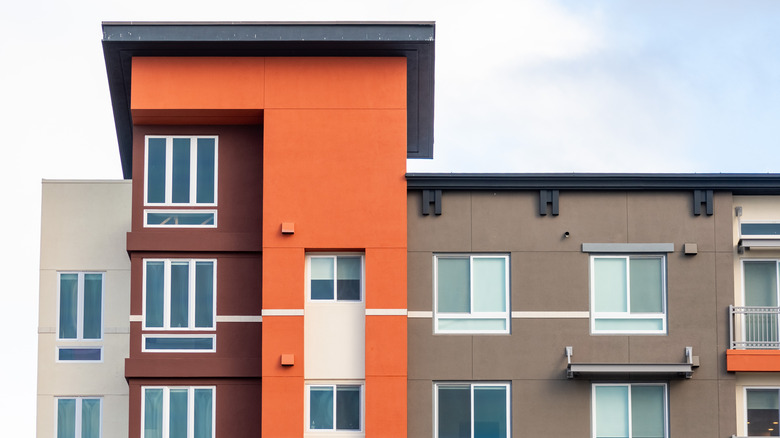What Exactly Is A Co-Op And Should You Buy This Type Of Home?
When you are thinking about your options for living arrangements, you may know you have the ability to rent or purchase, but you may not be sure either one of those opportunities is best for you. Buying a home can be expensive in some situations and may be out of reach financially. On the other hand, renting can also mean a large investment each month, which can also be quite limiting to many people, according to Investopedia.
As you think about your options in buying a home or renting, you may be looking for something that offers more affordability and fewer restrictions than owning a home or renting a home often presents. For some people, a co-op, also known as a housing cooperative, could be the route to take. Before you take that step, though, it's important to know what they are and how they work, and then to determine if they work for your long-term needs.
What is a co-op?
A co-op is a type of homeownership in which the tenants within a building share ownership. The tenants who share the apartment-like spaces own a portion of the property, and other tenants within that building own their own share. That means when you buy into a co-op, you are not purchasing the building outright like you would with a home. Rather, you are purchasing shares to the right to ownership of a portion of that building, according to Rocket Mortgage. The shares are in a nonprofit corporation, and by investing in it, you can live within that community.
Each co-op has a board of directors that governs it. This group will create a set of rules for those who live within the building to follow. The goal is to help ensure everyone can live within the space in a positive manner. This type of homeownership is common in larger cities where people live in condos or apartments in the same building.
Should you choose to live here?
It's up to you to choose what works for your family, but American Family Insurance offers some pros and cons of co-op living. Co-op owners maintain property rights, which means they have the ability to offer an opinion or make decisions about their property. There could be some tax advantages depending on the state's laws. Also, there are significant protections in place for tenants, which are more like owning a home rather than an over-seeing landlord.
There are some disadvantages as well, such as closing costs that tend to range from 8 to 10% of the total sales price, compared to the 2 to 5% when selling a traditional home (via NerdWallet). There's also the requirement of tenants to maintain their property, and often residents have to share in those duties. Also important is that you may not be able to sublet the property as you could with a traditional home or apartment. By-laws differ, so you'll need to consider them carefully before making this decision.


